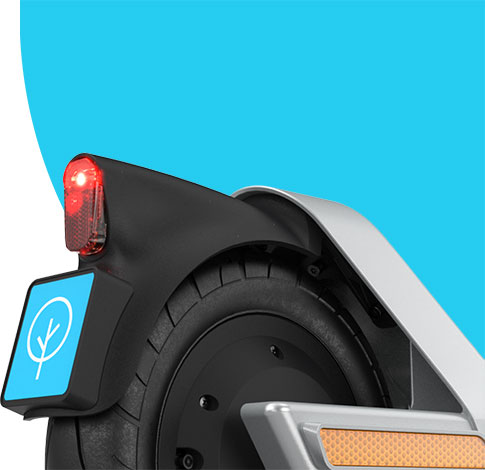The COVID pandemic is having a devastating impact on American public transit and those who rely on it for essential transportation.
According to Pranshu Verma’s recent New York Times article: “Ridership on top city systems has declined 70 percent to 90 percent. Sales tax revenue, which fuels many transit agency budgets, has cratered because of a collapsing economy. All told, transit agencies across the country are projected to rack up close to $40 billion in budget shortfalls, dwarfing the $2 billion loss inflicted by the 2008 financial crisis.”
These numbers paint a dire picture, particularly for minority and underrepresented populations who make up around 60% of transit riders in the US (67% if you only count essential workers). But the situation is not without hope. As cities work to quell, and then manage the fallout from, the ongoing global health crisis, there exists today—right now—a solution to help supplement public transportation: shared micromobility.
Dockless electric scooters have been serving tens of millions of riders in hundreds of cities globally for more than two years. What was mistakenly labeled by some a fad only used by well-to-do tourists has consistently demonstrated itself to be just the opposite: a viable mobility alternative to cars and a supplement to public transit that serves the transportation needs of everyday citizens.
How do we know this? It’s in the data.
According to a recent study published in Transportation Research: Part A, electric scooters are used far more for transportation than for recreation. This reinforces the fact that, while their form factor may indeed be fun, the appeal of these vehicles comes predominantly from their ability to transport riders safely and efficiently to their destination. More importantly, however, the study’s findings on demographic differences reveals just how important scooters can be to minorities disproportionately affected by transit disruptions:
“African American and non-white Hispanic respondents were significantly more likely than non-Hispanic white respondents to intend to try e-scooters and to be unhappy with current transportation options. […] These findings suggest that e-scooters fill an important transportation niche and may contribute to transportation equity, and that efforts to address barriers could further enhance that contribution.”
We’re already seeing this play out in Chicago, where electric scooters returned to city streets less than 10 days ago. Initial Bird data shows that approximately 1 out of every 8 scooter rides starts or ends in a neighborhood identified by the City as underserved. This means, at a minimum, tens of thousands of micromobility rides will take place in these neighborhoods throughout the remainder of 2020 in a city whose public transportation ridership is down 70% post-COVID. It also compliments what we’ve seen in other major global cities, where Bird ridership has increased by nearly 300%, across nearly all demographics, during periods of significant transit disruption.
Shared electric scooters are not a replacement for public transportation—they’re a supplement to it. The flexibility of our operating model, however, means that during unprecedented disruptions like the prolonged one we’re currently living through, these vehicles can help to bridge the gap between sustainability, personal mobility needs and the importance of remaining socially distant.
Bird remains, as we have been since the beginning of this crisis, ready to work hand in hand with cities so that, as our nation’s public transit works to recover, our nation’s public can still get to work.

Rebecca Hahn is the Chief Corporate Social Responsibility Officer at Bird.
Her role puts her at the confluence of community engagement and storytelling, leading the company’s global city engagement, government partnerships, policy, communications, marketing and brand teams.

